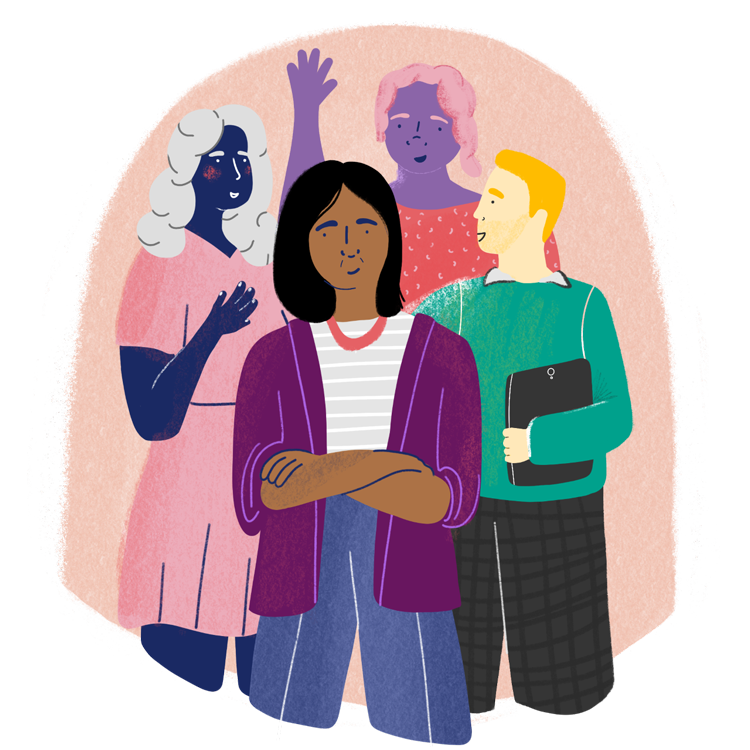Designing and testing stakeholder engagement and co-design in healthcare research


Designing and testing stakeholder engagement and co-design in healthcare research
Through an initiative we call OurResearch, OpenNotes is exploring new ways to: a) design and test research and, b) promote participant engagement in research.
Patients hold unique insights into their own healthcare experiences, and their active involvement is essential for advancing a truly patient-centered healthcare ecosystem. Over the last 15 years, patients and care partners have contributed increasingly to the design and conduct of studies. Today, patient advocates join funding institutions in evaluating new proposals, help establish research agendas and priorities, and a few have even won funding to lead their own research.
To make such advances we need to grow a larger, more representative cohort of participants. All too often, fundamental lack of trust in research and science are major barriers to such participation. Fully transparent communication about research and active involvement in the process may well advance meaningful patient engagement in these complex challenges.
OurResearch has two goals:
A step-by-step guide to peer review: a template for patients and novice reviewers BMJ Health & Care Informatics (2021)
Funded by the National Cancer Institute, the first project within the OurResearch initiative is a longitudinal study of people with slow-growing, malignant brain tumors. This study is being conducted in partnership with investigators at the Yale School of Public Health, University of Colorado, and The Jackson Laboratory.
In Optimizing Engagement in Discovery of Molecular Evolution of Low Grade Glioma (OPTIMUM), patients and care partners are co-designing a research process where they will make tweaks to a study over time (this is referred to as an “iterative process”). As partners, patients and researchers will test ideas to improve brain tumor registry recruitment such as how test results will be returned to research participants, and if the sharing of test results with those enrolled in the study will change the way patients feel about their involvement in research.
The four-year study aims to examine barriers people face in enrolling in clinical research, reasons why some people might be skeptical of research processes, and personal motivations behind why people participate and may find meaning in research.
Hypotheses: An OurResearch model of engagement will:
Participant Engagement and Cancer Genome Sequencing (PE-CGS) Research Network NIH National Cancer Institute
Optimizing Engagement in Discovery of Molecular Evolution of Low-grade Glioma (OPTIMUM) Yale School of Public Health (2021)
Stakeholder and community engagement in brain tumor research University of Colorado (2021)
Closing the circle to improve brain cancer care The Jackson Laboratory (2021)
Communications & Patient Initiatives Director, OpenNotes, Beth Israel Deaconess Medical Center
Executive Director, OpenNotes, Associate Professor of Medicine, Harvard Medical School, Beth Israel Deaconess Medical Center
Professor and Director of Medical Research, Yale University School of Public Health, Attending Neurosurgeon and Director of Stereotactic Radiosurgery, Department of Neurosurgery, Brigham and Women’s Hospital in Boston
Associate Professor and Associate Vice Chair of Research, Department of Emergency Medicine, Investigator and Education Program Director, Adult & Child Consortium for Health Outcomes Research & Delivery Science (ACCORDS), Director of Dissemination & Implementation, Colorado Clinical & Translational Sciences Institute (CCTSI)
Professor and Associate Director of Computational Biology, The Florine Deschenes Roux Chair For Genomics And Computational Biology, The Jackson Laboratory
Leslie Krumholz, JD, Co-Founder, CEO, Hugo Health
 The National Cancer Institute (NCI) is the federal government’s principal agency for cancer research and training.
The National Cancer Institute (NCI) is the federal government’s principal agency for cancer research and training.
![]() Except where otherwise noted, the content by OpenNotes is licensed under a Creative Commons Attribution 4.0 International License.
Except where otherwise noted, the content by OpenNotes is licensed under a Creative Commons Attribution 4.0 International License.
NEW WEBINAR
Getting It Write: What To Do Now That Patients in England Can Read Their GP Notes
Tuesday, November 1, 2022 | 8am Pacific Standard Time (PST)
11am Eastern Standard Time (EST) / 3pm Greenwich Mean Time (GMT)
While open notes have been the “law of the land” in the United States for more than a year, in England, adult patients accessing care through the National Health Service (NHS) will have access to their primary care record online for the first time starting Nov. 1, 2022.
In this webinar, we’ll be joined by open notes experts and discuss what this change means for patients and general practitioner (GP) staff in England.


